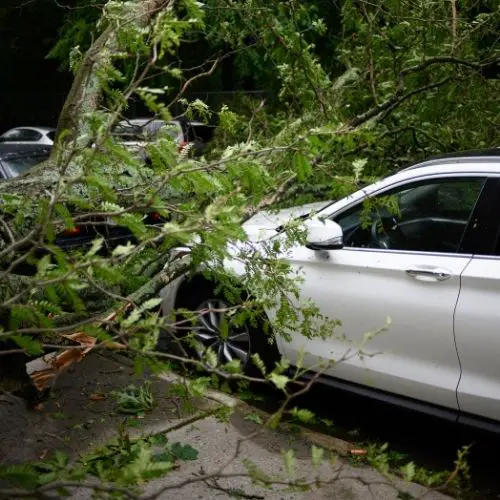We may get commissions for purchases made through links in this post. Thanks for the support! 👍
In general, anything that impacts engine performance relates directly to the shifting of the gears in your car. A bad catalytic converter can cause the engine to work harder, making the engine difficult to shift transmission.
In short, a bad catalytic converter doesn’t cause direct issues with the transmission. But it can cause engine problems and might damage the engine, and these engine concerns may make it seem like the catalytic converter is affecting the transmission. Moreover, a proper inspection of the transmission has to be done in a repair shop.

What problems do you face because of a bad catalytic converter?
If the engine doesn’t respond as it should be or stops running for some time, a bad catalytic converter is to be blamed. Besides, with an excess amount of unburned gas caused by a leaky exhaust valve or misfiring spark plug, catalytic converters are susceptible to overheating. Moreover, a damaged oxygen sensor might cause overheating as well.
In this context, the question is whether the bad engine can cause issues with the transmission. Missed gears or delayed while shifting gears are the major issues. While that isn’t a serious issue, it can create excessive overheating that leads to internal damage to the transmission parts.
However, there could be other issues that might relate to transmission problems. Certain engine-related problems could cause the computer to malfunction. As a result, the transmission won’t be able to shift gears with ease.
What are the causes that lead to a bad catalytic converter?
Although catalytic converters are designed to last for several years, they can go bad and might need a replacement in some cases. Most of the problems associated with a bad catalytic converter are because of engine defaults. Here are some reasons that you should know.
- Bad spark plugs
- Excessive fuel entering the exhaust system because of an incorrect air-fuel mixture
- Damaged oxygen sensor
- Incorrect engine timing
- Fuel leaving the combustion chamber of the engine unburned
When any of these happens, the catalytic converter attains a very high temperature. Also, it will start melting the internal parts of the converter or tear apart the honeycomb material. As such, the catalytic converter becomes dysfunctional.
Apart from that, worn piston rings, bad valve seals, or failed gaskets can cause fuel to enter the exhaust system and cover the converter’s ceramic catalyst with a thick layer of carbon soot.
If that remains unnoticed for long enough, the catalytic converter gets clogged because of the carbon deposits. That way, the exhaust flow gets locked and can cause overheating alongside other problems.
Finally, the catalytic converter will have a lot of physical damage. While it is not common, the outer shell of the converter might get damaged by potholes, road debris, or rocks.
Moreover, a dented cat converter means that the fragile components inside it have broken off, resulting in the cat performing below average.
Symptoms of a bad catalytic converter
Here are the common symptoms that indicate that your car’s catalytic converter is bad or clogged.
1. Fuel efficiency is low
If you notice that your gas mileage isn’t good as previously, it could be due to a catalytic converter failure. When the vehicle’s engine receives less oxygen, it tends to work harder. And, the harder it works, the more it will consume fuel.
2. The check engine light is always on
Modern vehicles are equipped with oxygen sensors that track the activities of the catalytic converter. Hence, if the converter has gone bad or isn’t performing well, the check engine light will brighten up on the dashboard. The sensors will detect whether or not the exhaust gases are being catalyzed the right way.
3. Experience poor acceleration
Because of a bad catalytic converter, the engine doesn’t get enough power when it comes to accelerating the vehicle. When carbon builds up inside the honeycomb or the internal components start melting because of excessive heat, a blockage occurs inside the converter.
How to prevent clogging?
The hydrocarbons inside the catalytic converter might not get burned when you drive short distances. To reduce the chances of clogging, drive your vehicle for about 15 minutes on the highway. It will create the required heat to burn the hydrocarbons effectively.
Unfortunately, if you have gone too far, and your catalytic converter has gotten too bad, you will likely have to buy and install a new one.
Frequently Asked Questions
What happens if you keep driving with a bad catalytic converter?
The catalytic converter is an essential part of your car’s exhaust system, and its job is to convert harmful gases into less harmful ones. However, if it becomes damaged or clogged, it can start to cause problems. For one thing, your car will lose power and fuel efficiency. You might also start to notice an unusual smell coming from the exhaust, and the engine might make more noise than usual. The last, and worse symptom, is that it can heat up due to the trapped heat from the exhaust and catch on fire.
How long do catalytic converters last?
The answer is, it depends. Catalytic converters can last anywhere from 20,000 to 50,000 miles, but several factors can affect their longevity. For example, if a catalytic converter is exposed to excessive amounts of heat, it can degrade more quickly. Additionally, if a catalytic converter is not properly maintained, it can become clogged and stop working altogether. As a result, it’s important to keep an eye on your catalytic converter and have it serviced regularly to ensure that it lasts as long as possible.
What happens if the catalytic converter is removed?
If you’re considering removing your catalytic converter, there are a few things you should know. First, your car will be louder. Catalytic converters work to reduce exhaust noise, so without one, you can expect a significant increase in noise levels. Additionally, your car will produce more emissions. Catalytic converters help to reduce harmful pollutants in exhaust gases, so removing them can hurt air quality. Thirdly, your car’s fuel efficiency may decrease. Catalytic converters help the engine to run more efficiently, so without one, you can expect to see a decrease in gas mileage. Finally, your vehicle will likely be illegal to drive on the roads. These emissions systems are installed by law, and removing them can cause your vehicle to be considered unroadworthy. In short, there are several potential drawbacks to removing your catalytic converter.
Conclusion
So, it is evident that a bad catalytic converter isn’t related directly to transmission issues. However, it makes the engine work harder, which makes the vehicle difficult to shift gears.
![This Is How Cars Have Wifi [And Why]](https://amanandhisgear.com/wp-content/uploads/2020/01/How-do-cars-have-wifi.jpg)

